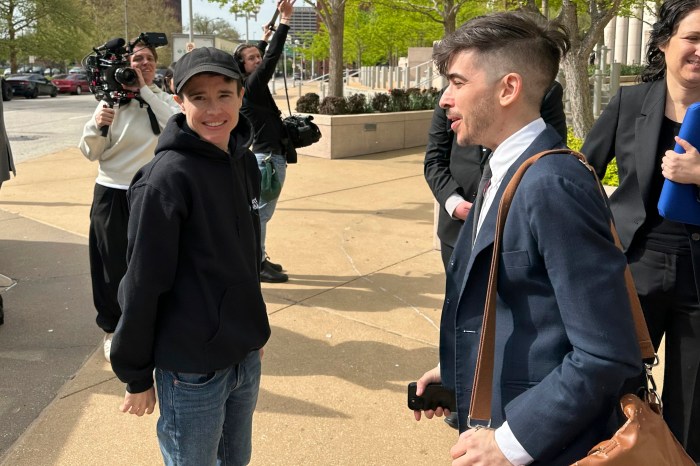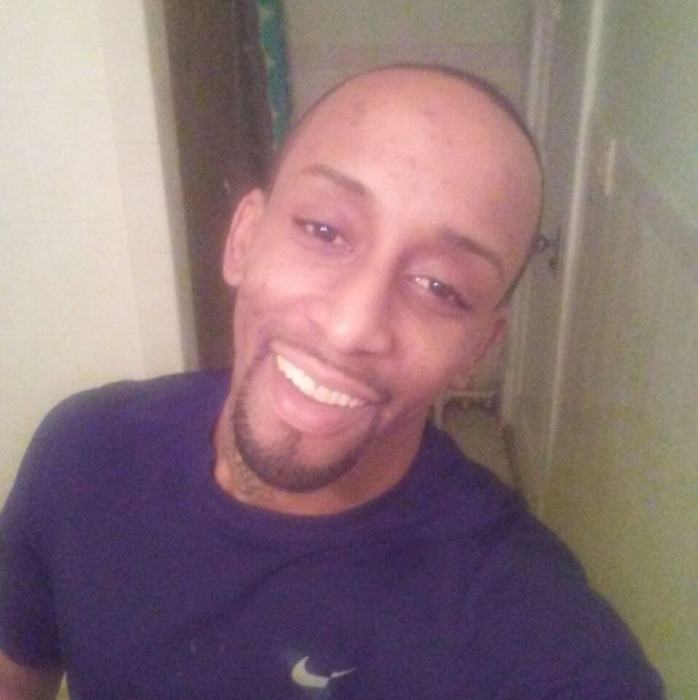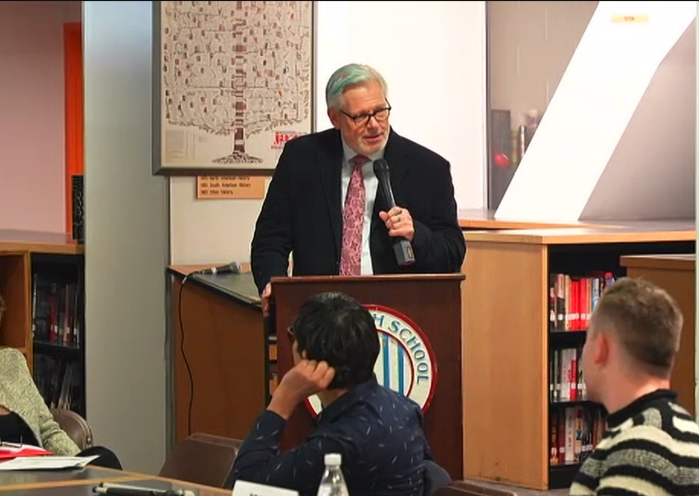BY PAUL SCHINDLER | In a remarkable tandem show of support for global LGBT rights, President Barack Obama and Secretary of State Hillary Clinton marked International Human Rights Day with a comprehensive executive order to federal agencies engaged in foreign countries and a major address on the universal legitimacy of demands for equality and dignity.
Clinton, in a December 6 speech to a United Nations audience in Geneva, offered a ringing endorsement of LGBT rights, acknowledged — to a degree — where the US has fallen short, challenged the notion that gay identity is a “Western phenomenon,” and warned that ignoring calls for equality involves social “costs” in terms of “disease and violence,” as well as “ideas never pursued by entrepreneurs who happen to be gay.”
On the same day, the president issued an Executive Branch memorandum committing the administration to opening up the US to LGBT refugees and asylum seekers, using foreign assistance as a tool to promote human rights, and ensuring a “swift and meaningful US response to human rights abuses of LGBT persons abroad.”
Despite reported State Department concerns that Clinton’s impassioned speech might lead to a walkout by representatives of Islamic and African nations with the most troubled LGBT rights records, that did not happen, even if applause was limited to others in her audience.
Reaction to the speech and the Obama order was enthusiastic among US LGBT rights groups, though some cautioned that the US must proceed in a fashion that does not suggest it is trying to impose solutions on other nations.
And, some activists are pointing to the December 6 initiatives to underscore the unfinished journey of the president himself on LGBT equality at home.
The secretary of state’s appearance in Geneva was an unprecedented focus on LGBT rights in a global setting by a senior US official, with Clinton devoting the entirety of a nearly 3,200-word speech marking international human rights to issues facing the queer community.
“Today, I want to talk about the work we have left to do to protect one group of people whose human rights are still denied in too many parts of the world today,” Clinton said at the outset of her address. “In many ways, they are an invisible minority. They are arrested, beaten, terrorized, even executed. Many are treated with contempt and violence by their fellow citizens, while authorities empowered to protect them look the other way or, too often, even join in the abuse. They are denied opportunities to work and learn, driven from their homes and countries, and forced to suppress or deny who they are to protect themselves from harm. I am talking about gay, lesbian, bisexual, and transgender people — human beings born free and given bestowed equality and dignity — who have a right to claim that, which is now one of the remaining human rights challenges of our time.”
Clearly aware that many nations — both those resistant to LGBT equality demands and others at the forefront of granting full civil rights — might be wary of a lecture on this topic from the US, Clinton next conceded this nation’s performance has its own stark blemishes.
“My own country’s record on human rights for gay people is far from perfect,” she said. “Until 2003, it was still a crime in parts of our country. Many LGBT Americans have endured violence and harassment in their own lives, and for some, including many young people, bullying and exclusion are daily experiences.”
Tying LGBT rights to the worldwide effort launched 60 years ago with the Universal Declaration of Human Rights, the secretary next confronted the day’s most contentious issue — the “question of whether homosexuality arises from a particular part of the world.”
Here she took her opponents in the audience head on, with an argument that many on the Christianist right in the US take exception to.
“Some seem to believe it is a Western phenomenon, and therefore people outside the West have grounds to reject it,” Clinton said. “Well, in reality, gay people are born into and belong to every society in the world… Being gay is not a Western invention; it is a human reality.”
She then ticked off LGBT advances initiated by governments outside the most affluent Western countries, including South Africa, Colombia, Argentina, Nepal, Mongolia, and India.
The secretary also challenged religious objections to homosexuality with a perspective she did not always embrace fully. In 2000, as a candidate for the US Senate, Clinton told this reporter that her objections to marriage equality were based in “historic, religious, and moral content that goes back to the beginning of time.”
Yet in Geneva, she declared, “It bears noting that rarely are cultural and religious traditions and teachings actually in conflict with the protection of human rights. Indeed, our religion and our culture are sources of compassion and inspiration toward our fellow human beings. It was not only those who’ve justified slavery who leaned on religion, it was also those who sought to abolish it.”
Clinton also framed LGBT rights in terms of the cost discrimination imposes on society.
“Some worry,” she said, “that protecting the human rights of the LGBT community is a luxury that only wealthy nations can afford. But in fact, in all countries, there are costs to not protecting these rights, in both gay and straight lives lost to disease and violence, and the silencing of voices and views that would strengthen communities, in ideas never pursued by entrepreneurs who happen to be gay. Costs are incurred whenever any group is treated as lesser or the other.”
Festus Mogae, the former president of Botswana, Clinton noted, said “that for as long as LGBT people are kept in the shadows, there cannot be an effective public health program to tackle HIV and AIDS.”
She added, “Well, that holds true for other challenges as well.”
Acknowledging that the issues she was raising “take a conversation,” the secretary argued, as well, “Progress comes from changes in laws.”
Then, in a frank acknowledgement of the fractious nature of creating legal advances in the US, she said of the battle over ending the military’s Don’t Ask, Don’t Tell policy, “The Marine Corps Commandant, who was one of the strongest voices against the repeal, says that his concerns were unfounded and that the Marines have embraced the change.”
In Washington, Clinton’s speech was reinforced with a directive from the president spelling out his administration’s support for embracing immigrants seeking refuge from persecution and using foreign assistance and diplomacy to promote human rights and respond, in a “swift and meaningful” way, to rights abuses around the world.
The US record on asylum seekers, as this newspaper has chronicled, is mixed at best, with wide latitude given to individual Immigration Judges, who are Justice Department employees. Though applicants have recourse to a Board of Immigration Appeals and civilian appeals courts, most enter this legal labyrinth with inadequate legal counsel, and for many arrivals from brutally homophobic societies, the simple act of approaching government authorities as an out gay person is foreign.
The Obama memo emphasized that Department of State, Justice, and Homeland Security staff will be trained to “effectively address the protection of LGBT refugees and asylum seekers,” a move that has the potential of improving the record of Immigration Judges in the system.
The Obama focus on foreign assistance, including the appropriation of $3 million toward the establishment of a new Global Equality Fund to help “civil society organizations” on the ground in foreign nations, was the one element of the December 6 initiatives that spurred detailed critical discussion among US LGBT advocates.
Jessica Stern, the acting executive director of the International Gay and Lesbian Human Rights Commission (IGLHRC) who previously served for years as an LGBT specialist at Human Rights Watch, argued that the administration’s efforts were “initially misinterpreted in online discussions and by the media.”
The Obama memo, she noted in a written release, stated that “agencies involved with foreign aid… shall enhance their ongoing efforts to… build respect for the human rights of LGBT persons.” Stern added, “To be clear, there were no indications of tying aid to conditions or of cutting aid.”
“If the US government were to limit bilateral assistance to homophobic countries, it would risk dividing LGBT rights from other human rights,” Stern told Gay City News. “The truth is that LGBT people, like straight people, need clean water and fair courts and so conditional aid would hurt everyone.”
The administration’s initiatives, Stern said in her written release, “make clear that LGBT rights are not a mere afterthought but a carefully considered component of US foreign policy. Because of the distinct needs of LGBT people globally, such a nuanced approach is crucial.”
In her follow-up to the newspaper, she said, “IGLHRC unequivocally welcomes these developments… The newly stated US policy is something LGBT human rights activists have called for for many years. Such a policy, however, if not enacted with sensitivity to the knowledge and needs of grassroots LGBT [non-governmental organizations] and activists could also create a serious backlash.”
Most other advocacy groups were less detailed in their responses, but typically positive.
Immigration Equality, which advocates on behalf of binational couples seeking to stay in the US, praised the Obama memo’s focus on asylum seekers. GLIFAA, a group for gays and lesbians working in foreign affairs agencies, welcomed the commitment Obama and Clinton voiced for integrating LGBT advocacy into the nation’s diplomatic efforts.
The National Gay and Lesbian Task Force declared, “History is being made,” and the Human Rights Campaign said, “Secretary Clinton distinguished herself as a legendary champion of rights for all people.” In a written statement, Kate Kendall, the executive director of the National Center for Lesbian Rights, said, “Hearing the United States secretary of state speak passionately about ending violence and discrimination against LGBT people throughout the world left me with a lump in my throat and tears in my eyes.”
Still, the soaring rhetoric and bold promises from the Obama administration inevitably also reminded activists of the unfinished work at home, most prominently the president’s own halting “evolution” on the question of marriage equality.
Three advocacy groups — GetEQUAL, Stop the Deportations, and Out4Immigration — called on Homeland Security Secretary Janet Napolitano to exercise her discretion to grant temporary “humanitarian parole” to the foreign same-sex spouses and partners of American citizens.
In recent months, Homeland Security initiated a process to “unclog” the 300,000-case backlog of deportation proceedings by weeding out those without criminal records or signs they pose a national security risk. Though that process has resulted in a handful of same-sex partners and spouses having their deportation cases closed, the effort is grindingly slow, uneven, and for some coming too late.
GetEQUAL also posted a YouTube video featuring Jesse, a New Yorker, and Max, an Argentine national, who have been together for more than a decade but are currently living in London because Max cannot get a green card to live here.
“Secretary Clinton’s speech to the UN was incredible — and the Obama administration has an opportunity right now to give shape to those words by proving to the LGBT community that it values and supports our relationships,” said Robin McGehee, GetEQUAL’s director, in a written statement. “We’ve heard a lot of nice words from this administration — now it’s time to move beyond words to action, and to bring these couples home for the holidays.”

































